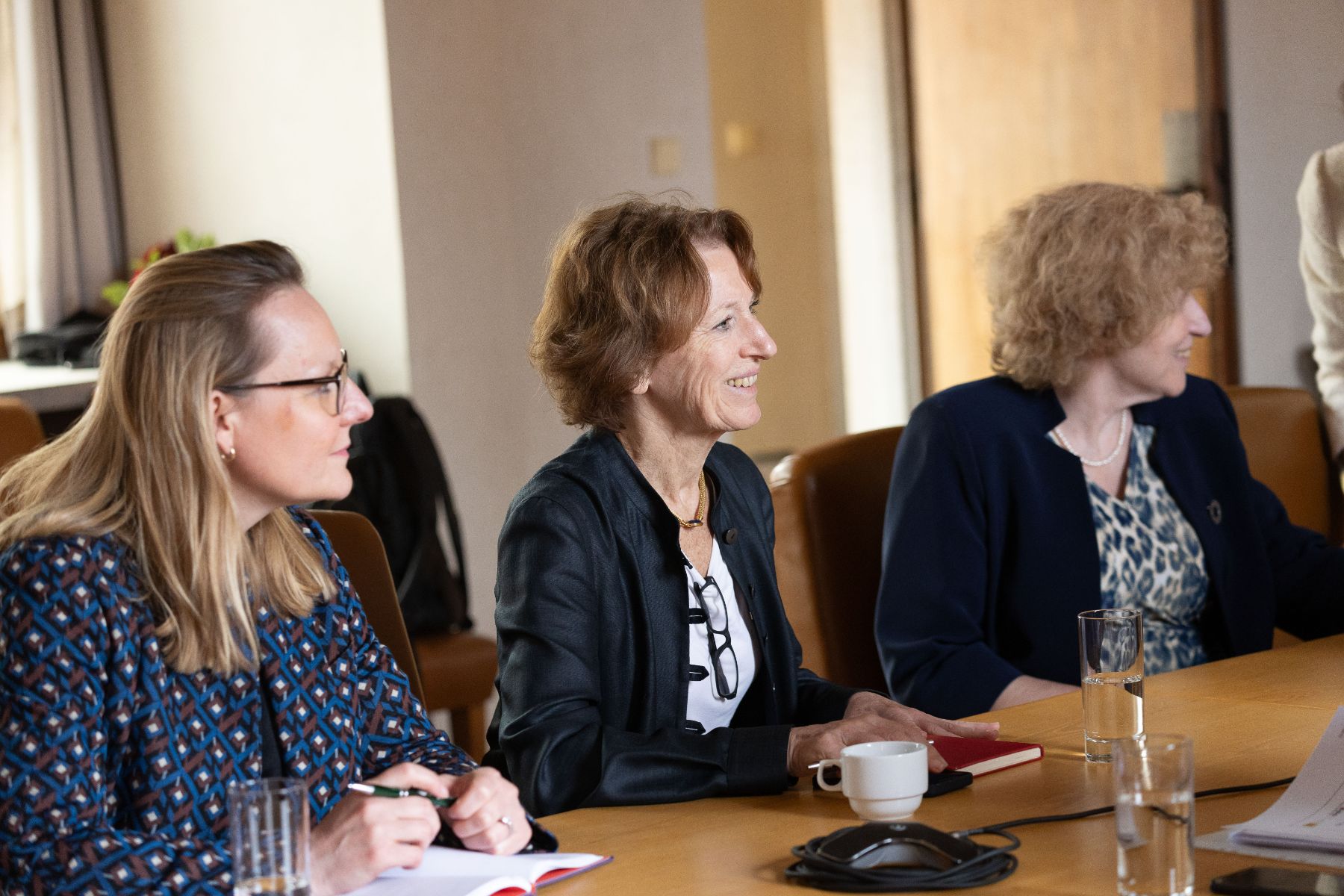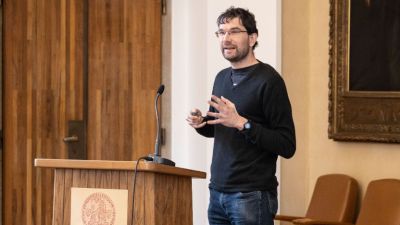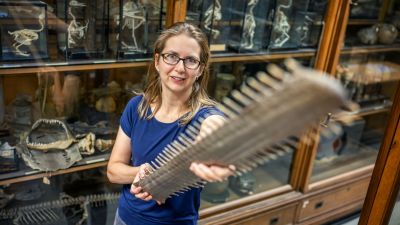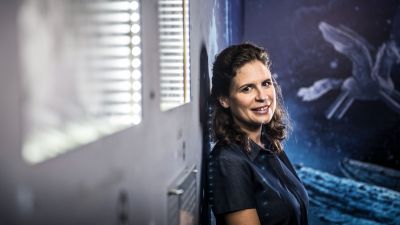"For excellent science you need money, freedom, high-quality infrastructure and a good academic environment," says Maria Leptin, president of the European Research Council (ERC), who visited Charles University during her two-day visit to the Czech Republic.
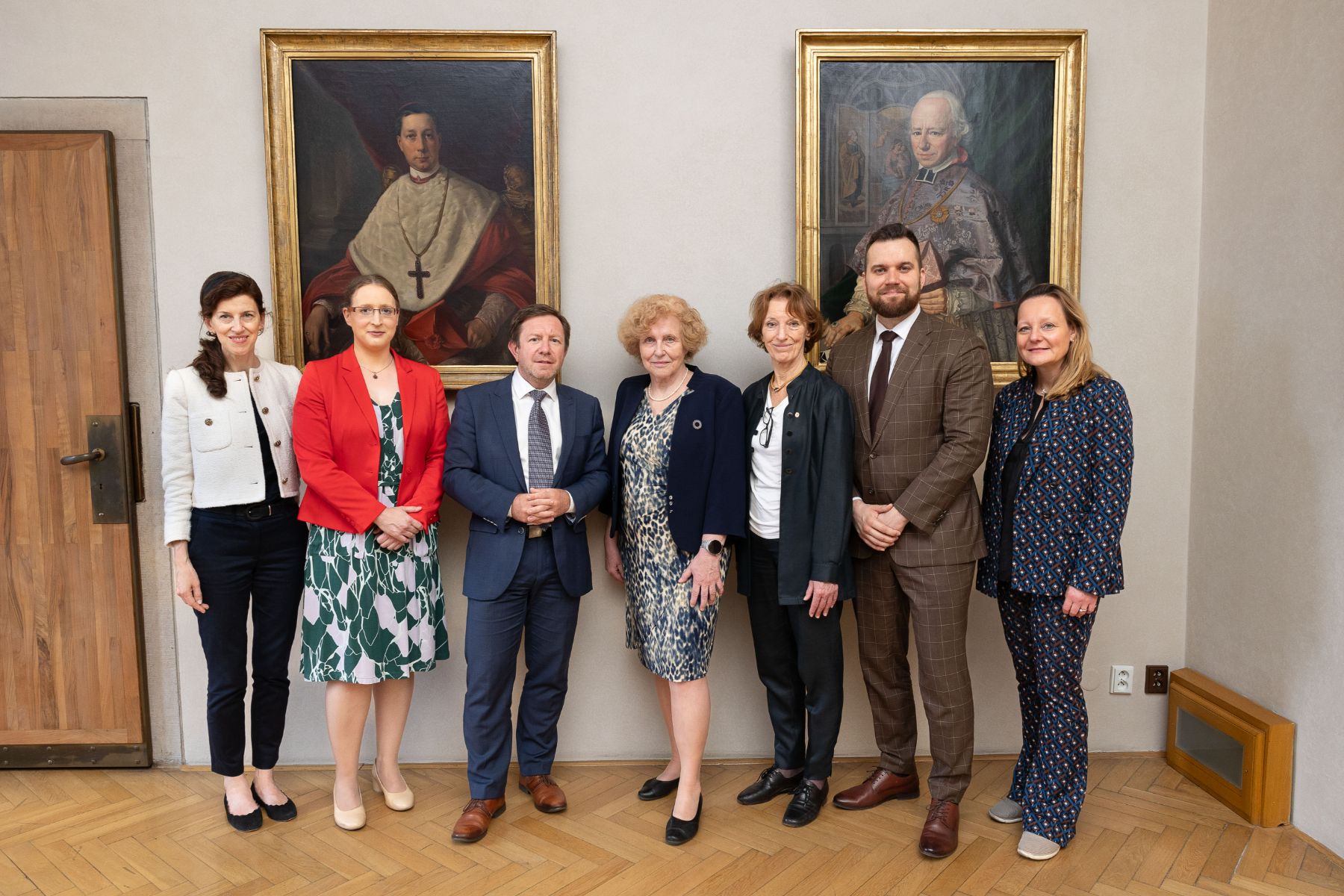
Winning team: Maria Leptin (third from right) with representatives of Czech institutions.
"There are many ways to support high-quality science. One of them, of course, is money," says Maria Leptin, president of the European Research Council (ERC). It is this organisation that has been awarding generous grants since 2007 to support cutting-edge research in all fields of science.
"Cutting-edge science continues to need freedom so that scientists can pursue their ideas, even if they end up being proven wrong. Another condition is a kind of certainty, so that they have three or four years of freedom, when they are not constantly bothered by questions about whether they have already discovered something, whether they have already published, whether they have already written a report," Leptin lists the findings that emerge from surveys and from the researchers themselves." In short, for good science you need freedom of thought, but also time and space to realise your ideas. Research has also shown that structures with very flat or no hierarchy, where you don't need anyone's permission to make decisions, are much more productive," the ERC president told Forum magazine.
She also stressed the need for good infrastructure. "For the social sciences and humanities you might need a good library or access to museums. If you are an experimental scientist, you need good instruments and good staff to operate those instruments. And you also need a good intellectual environment that stimulates discussions with colleagues, even critical ones."
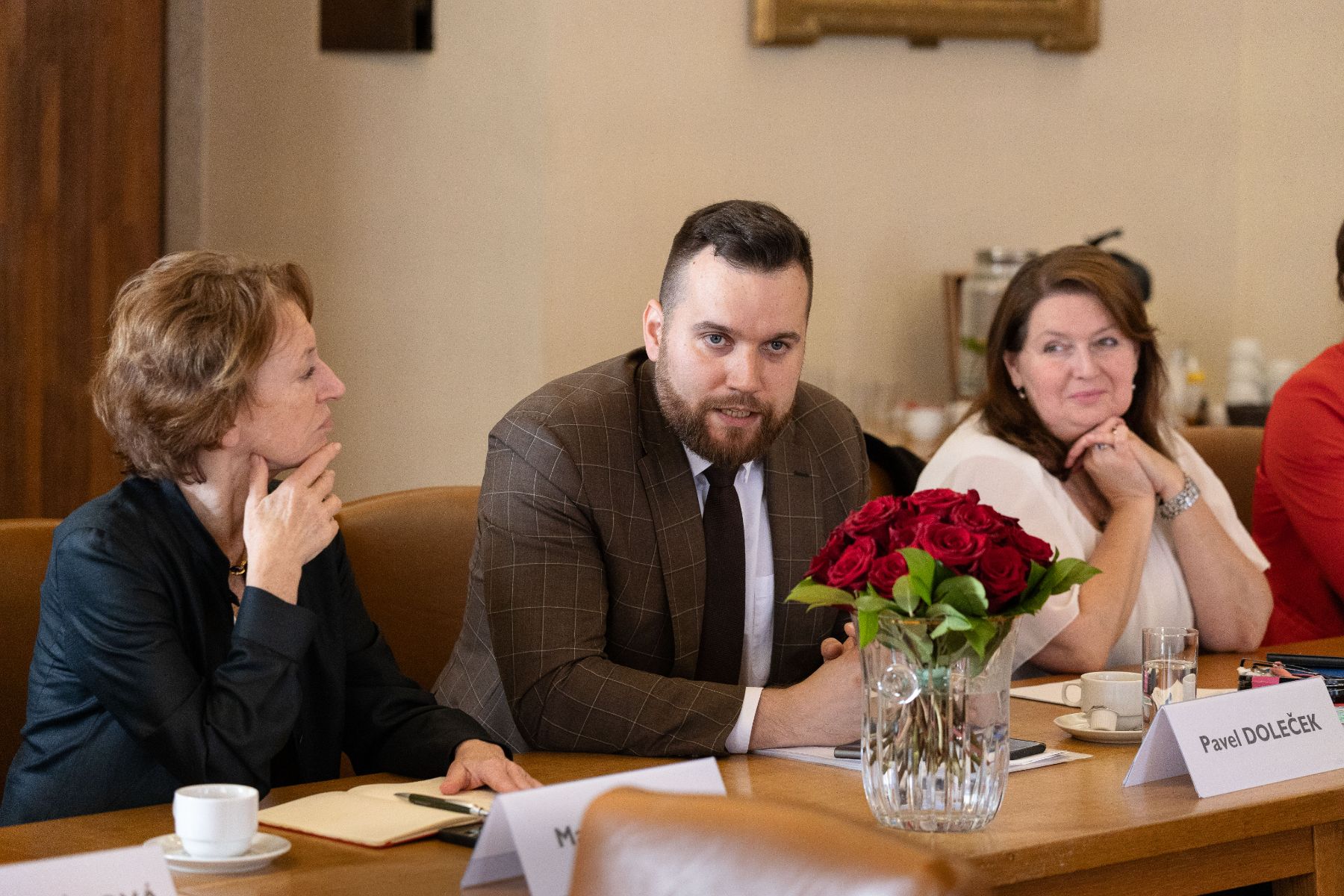
During her two-day visit to the Czech Republic, Maria Leptin participated in several meetings at Charles University.
ERC grants are, in addition to secured funding and therefore freedom, an important sign of quality and recognition of an original scientific idea that, if successful, can "change the world". What are the ERC's priorities for the coming years? "The ERC's strategies are determined by our Scientific Council, made up of 22 researchers from all over the world. The Czech Republic is represented by Alice Valkárová (a Czech nuclear physicist from the Faculty of Mathematics and Physics of Charles University and former chair of the Czech Grant Agency - editor's note). And we have many ideas of what we would like to do, but we don't have the funds for everything," says Maria Leptin. As a concrete example, she says that they would like to fund more collaborative grants or smaller projects, for example.
It is also the lack of funding that is holding back European science. "We have fantastic people, we have excellent ideas, we have top universities and research institutions. But our global contribution, our place in global competition, is exactly matched by the money we put into science. We lag behind - the US spends $720 billion a year, China $620 billion and Europe $400 billion. We could be at the top, we have the talent, we have all the infrastructure, but we need money. We are currently preparing the next budget from 2028 onwards and we hope that we will be able to convince politicians to invest more in science," adds Maria Leptin with optimism, who during her two-day visit discussed with Czech scientists and institutional representatives, for example, at the conference Through Academic Culture to Scientific Excellence organised by Czexpats in Science or at the ERC Science Mini-Conference in Brno.
ERC at Charles University
"Charles University seeks systematic and long-term support to increase the success rate of applicants in obtaining ERC grants. The support for applicants for ERC grants was initiated by several individuals from the scientific community in cooperation with the Technology Centre of the Czech Academy of Sciences more than ten years ago," says Zdeněk Strakoš, from the Faculty of Mathematics and Physics of Charles University, who has long been working to increase the success rate of Czech applicants and is the coordinator of the Expert Group to support applicants in calls.
A system of workshops has been gradually developed, which is professionally led by a group of experts and organised by the Technology Centre Prague, with the support of the Czech Academy of Sciences, Charles University and Masaryk University. "The whole preparatory process is extremely useful for us applicants – from the beginning you get valuable feedback from people who have already received an ERC grant, participated in an interview or been on evaluation panels. This helps you to rethink your research direction and what you want to focus on, but also to choose the right way to communicate," summarises evolutionary biologist Zuzana Musilová from the Faculty of Science CU, who was awarded an ERC Consolidator grant last year, in an earlier interview. She is studying the vision of deep-sea fish, which could also provide important insights for our human eye. "Just having a great idea is not enough. Careful crafting is just as important as the research question itself, and perhaps that is what determines the success of an application, because in the second round you are already meeting other applicants who all had a good idea," she added.
Charles University also has a PRIMUS programme aimed at talented young scientists with the prospect of applying for ERC grants. "The Primus programme enables the establishment of one's own research group and thus significantly increases the chances of applicants in ERC competitions. So far, a total of 17 ERC grants have been solved at Charles University - 11 at the Faculty of Mathematics and Physics, five at the Faculty of Science and one at the Faculty of Social Sciences," says Strakoš.
We regularly write about PRIMUS researchers who very often become ERC grant holders in Forum magazine. With some of them, we are also gradually filming minute-long popularization videos Science at Charles University.


